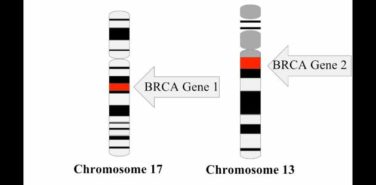FROM ENVIRONMENTAL HEALTH
The number of active airline pilots managing depressive symptoms might be severely underreported because of pilots’ fear of facing workplace stigma, a cross-sectional study of pilots from across the globe suggests.
“This study fills an important gap of knowledge by providing a current glimpse of mental health among commercial airline pilots, which to date had not been available,” wrote the authors, who added that such data are even more important in the wake of the March 2015 Germanwings flight 9525 crash.
In the study, Alexander C. Wu, MPH, and his coinvestigators conducted a descriptive, cross-sectional study by distributing an anonymous online survey through airline unions, companies, and airports. The survey, administered between April and December 2015, was received by 3,485 airline pilots. Among that number, 1,866 completed half the survey and 1,837 completed the entire survey. Symptoms of depression were evaluated based on the Patient Health Questionnaire ( PHQ-9 ) depression module, with questions taken from the National Health and Nutrition Examination Survey – created by the Centers for Disease Control and Prevention’s National Center for Health Statistics – and the standardized Job Content Questionnaire ( JCQ ) (Environ Health. 2016 Dec 15. doi: 10.1186/s12940-016-0200-6 ).
The median age of those who responded was 42 years for females and 50 for males, and the average career length was 16 years across both genders, reported Mr. Wu, a doctoral candidate at the Harvard School of Public Health in Boston, and his coinvestigators. Nearly half of the respondents (45.5%) were from the United States, which was one of more than 50 countries represented, including Canada, Australia, Spain, the United Kingdom, Germany, the United Arab Emirates, Hong Kong, and Thailand.
More than 60% of the respondents had either a 4-year college/university degree or graduate education, and 80% of respondents had flown at least one “major trip” in the 30 days prior to completing the survey. Most of the respondents did not smoke, were married, and were white. Depression threshold was defined as a score of at least 10 on the PHQ-9, which was reported by 233 of the 1,848 responding airline pilots (12.6%), and 193 (13.5%) of the 1,430 pilots who reported flying in the 7 days prior to completing the survey. Furthermore, 75 (4.1%) of the 1,829 who answered the relevant question reported having suicidal thoughts at some point in the prior 2 weeks.
“We found a significant trend in proportions of depression at higher levels of use of sleep-aid medication (P less than .001) and among those experiencing sexual harassment (P = .001) or verbal harassment (P less than .001),” the investigators noted. In addition, 75 of the pilots “reported having thoughts of being better off dead or self-harm within the past 2 weeks,” the investigators wrote. “To our knowledge, this is the most current measure of the prevalence of suicidal thoughts among airline pilots.”
When asked about the study, Mark S. Gold, MD, said in an interview that workplace stigmas and the fear of facing criticism from their colleagues may be the prevailing factor in preventing pilots from openly discussing these issues among themselves. “Being a pilot, like a physician, is a drug-free occupation, [but] substance use disorders and depression are so commonly found together that the question is often ‘chicken or egg,’ ” said Dr. Gold, adjunct professor of psychiatry at Washington University in St. Louis, and former Donald R. Dizney Eminent Scholar and chairman of the psychiatry department at the University of Florida, Gainesville. “Add shame, guilt, and denial, and suicide ideation, [and] attempts and completions become all the more common.”
The solution, Dr. Gold said, is early detection, along with “multidisciplinary evaluation and diagnosis, prompt treatment and long-term follow-up by a physician’s health program or [an employee assistance program that] is associated with sustained remissions.” Mr. Wu and his coinvestigators said they would neither rate nor recommend a specific treatment. “However, [Internet-based cognitive-behavioral therapy] is one example of a possible intervention found in the literature,” they wrote.
The investigators cited several limitations. They conceded, for example, that there is “potential underestimation of frequencies of adverse mental health outcomes due to less participation among participants with more severe depression compared to those with less severe or without depression,” as well as the fact that the age of those who completed the survey were, on average, older, and they had flown more recently than had noncompleters. The age discrepancy might have skewed the results.
Harvard T.H. Chan School of Public Health funded the study. Mr. Wu and his coinvestigators reported no relevant financial disclosures.




